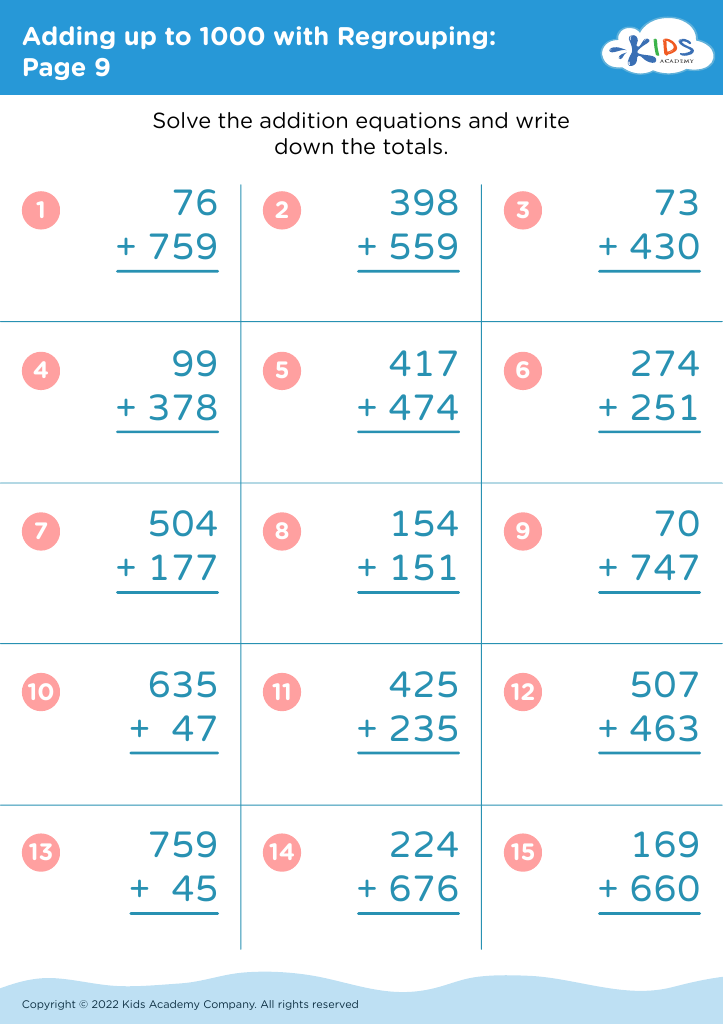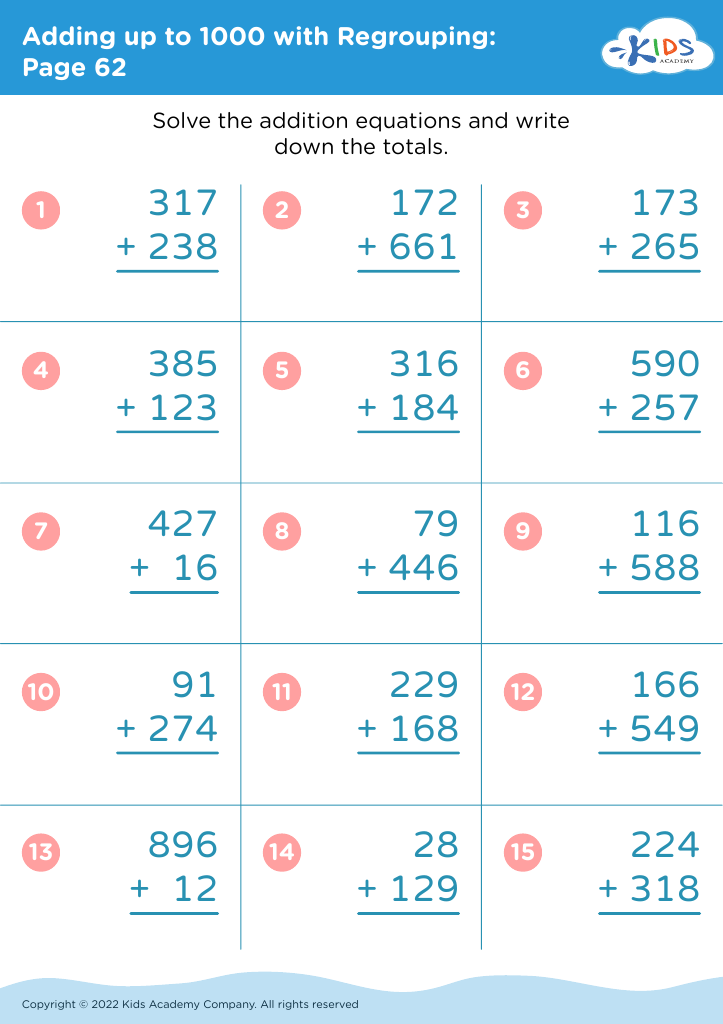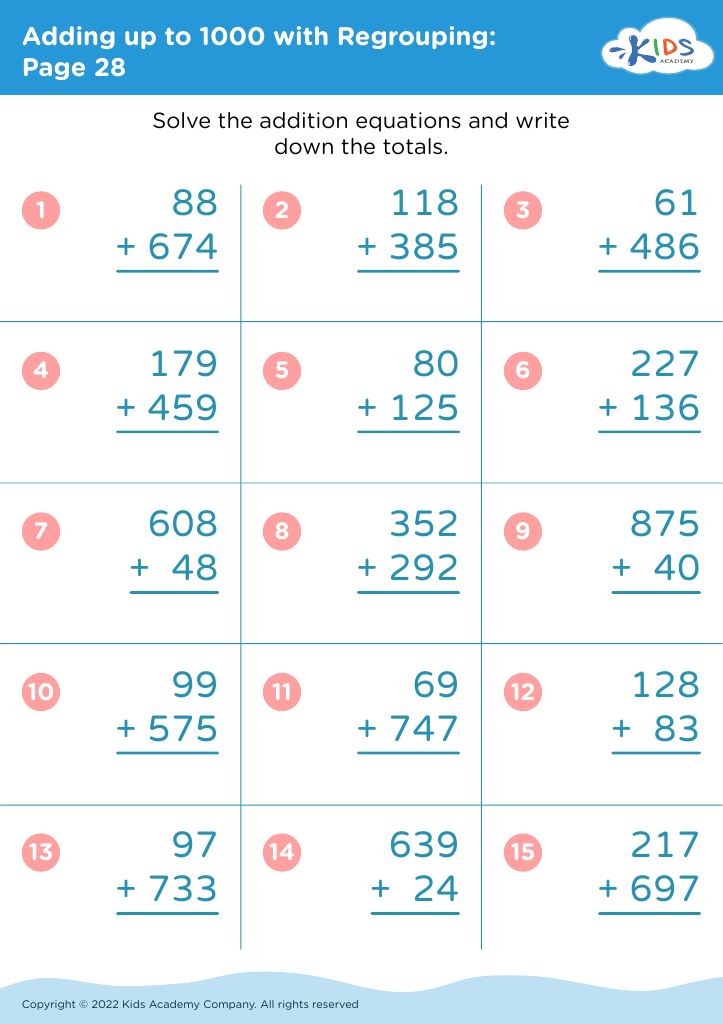Problem-Solving Skills Adding up to 1000 with Regrouping Worksheets for 8-Year-Olds
5 filtered results
-
From - To
Boost your 8-year-old's problem-solving skills with our engaging "Adding up to 1000 with Regrouping Worksheets." Specifically designed for young learners, these worksheets offer a fun and interactive way to master addition through regrouping, enhancing both arithmetic skills and critical thinking. By tackling real-world math problems, children will develop confidence and proficiency in handling larger numbers. The worksheets provide clear instructions and vibrant visuals to guide each student’s learning journey, ensuring they grasp concepts effectively. Perfect for classroom use or at-home practice, these worksheets are a must-have tool for fostering a solid mathematical foundation in your child. Start enriching their problem-solving abilities today!
Parents and teachers should prioritize problem-solving skills, particularly those involving addition with regrouping, because these foundational mathematical concepts are crucial for a child's cognitive development. Mastering these skills enables children to approach more complex math with confidence and competence. Problem-solving, which includes addition strategies that reach up to 1000, cultivates critical thinking. It encourages children to analyze and strategize their approach, fostering independence and resilience in learning.
Additionally, these skills transfer to real-life situations: from budgeting their allowance to dividing snacks among friends. Effective problem-solving also enhances adaptability; children learn to adjust their methods when encountering new challenges or mistakes, an invaluable skill beyond academics. By practicing regrouping strategies, students strengthen their understanding of place value, which is essential for multiplication and division, thereby creating a solid math foundation for future grades.
Engaging in problem-solving activities encourages creativity as children discover various ways to arrive at an answer. As they celebrate their successes, it builds their self-esteem and enthusiasm for math and learning in general. Thus, supporting students in developing these skills is vital for their intellectual growth and future academic endeavors.















